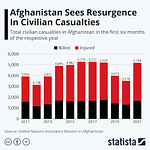The Call In podcast helps leaders navigate today’s cancel culture.
The bi-weekly show addresses one of the most important (and least understood) issues – diversity, equity & inclusion – translating today’s DEI headlines into actionable guidance for any leader.
Visit the website to learn more, or subscribe to the podcast on Apple Podcasts or Spotify.
Call In is sponsored by Clayton, Dubilier & Rice, which is committed to a more diverse and inclusive future.
Reports note that 90% of Fortune 500 companies have employee resource groups, or ERGs, that provide important voice to under-represented groups, offer employees the chance to gain empathy and learn about others’ journeys, and create a majority experience for everyone.
But given the reality of work environments where many employees already have too much on their plates, how can leaders make sure ERGs work for everyone and don't simply pile new responsibilities on already overloaded team members?
Chris Riback: Dr. White, I've been looking forward to talking with you on this topic. Should we get right into it?
Dr. Alexandria White: Let's go.
Chris Riback: I saw an interesting stat that some 90% of Fortune 500 companies have employee resource groups or ERGs. Alex, what is an ERG? Why did they come about? What are their benefits?
Dr. Alexandria White: I am definitely excited about our conversation on ERGs. I think they are the new driving force for inclusion and belonging at many companies.
Many companies view ERGs as a competitive advantage. Employee resource groups or ERGs are usually employee led, experience based groups that highlight the lived experiences of employees at companies. ERGs have a mission to bring together people who share similar interests, identities, race, sexual orientations or even religion. And depending on which company, ERGs might have a different name such as working groups, communities, affinity groups or even network circles.
Chris Riback: They're not always called the same thing but they have the same purpose, same goal.
Dr. Alexandria White: Correct. There's many benefits to ERGs. Let's start with the employee. Why would an employee even want to join an ERG? Many people who are members of ERGs represent underrepresented groups in large companies, and so those ERGs can help give those employees the majority experience. By listening to their experiences at work, maybe highlighting their culture or discussing how the company can increase a sense of belonging for them. Also ERGs offer professional development. They have workshops, they have mentee mentor opportunities and even special projects. For Reboot Excel, one of clients is hosting a focus group for Black employees to hear candid feedback about their experiences at the company. It's a great way to get an insight to what's going on.
And what are they not? They're not opposition groups, they're not gripe sessions or unions or meant to be political or event planning organizations or they're not closed off to people who might not identify with that group. We'll talk a little bit more about allies for ERGs, but I definitely want to say what they are not.
Chris Riback: Alex, in listening to you, the question comes to mind, aren't they just a bunch of extra work? You just described a series of activities that employees who already have full plates, already have roles, responsibilities are taking on that they may or may not be getting compensated additionally for doing. So why should an employee do it?
Dr. Alexandria White: I think people join ERGs for a sense of belonging. I remember being in college and I was a member of lots of club and student organizations.
Chris Riback: I bet you were.
Dr. Alexandria White: I was a member of the Harry Potter Club, Black Student Union, Students Against Sexual Assault, the Jogging Club. And so being a member of all those student organizations and clubs made me feel heard and talked about my interests. And so for me, ERGs are like those student orgs and those clubs in college, where you're allowed to have a voice. You are allowed to talk about what's going on, your interests. You're allowed to advocate for something that's very personal to you. And so people want that space. Yes, it is extra work but sometimes the extra work really outweighs or the extra work is not in comparison to the sense of belonging that it brings to the people who attend.
Chris Riback: Tell me about some of the benefits of ERGs, especially as you think about the historical path that brought ERGs to where they are today.
Dr. Alexandria White: Okay. You mentioned earlier that 90% of Fortune 500 companies have ERGs. 90%.
Chris Riback: A big number.
Dr. Alexandria White: Yes. That means there is a benefit somewhere. And so I'd like to consider two aspects of the functions of ERGs. One, cost saving and two, revenue generating. We actually have a great graphic of the benefits of ERG, it's available on our website, there's a link to our website in the show notes and our website is callinpodcast.com
In regards to cost saving, when you have people who want to stay at a company, who enjoy working for the company and who know that they can advance the company, they stay there so the cost saving aspects of ERGs provides three legs to it: recruiting, retention and advancement.
Then revenue generating. How are ERGs able to bring money to a company? You're able to get insight from some of your ERG members about a product, about an initiative that might be coming out. Benefits of ERGs, improve retention, it's an asset to recruiting workforce, increased employee engagement and it's a product incubator. And I want to home in on asset to recruiting new workforce. We know that this new generation of workforce are very keen on a sense of belonging at their places of employment and understanding that everyone has a voice. ERGs provide that. And so when you talk about the benefits, it's not only personal but it's also professionally in regards to helping companies understand that it's a needed aspect in the overall workforce community.
Chris Riback: How do you think about those benefits in a hybrid workplace? As more workplaces go to that type of arrangement, do the benefits hold up similarly? Do they become more beneficial?
Dr. Alexandria White: As we help companies launch ERGs, during the pandemic, I cannot recall any clients right now who have had ERG meetings in person. And so they have been virtually, the launching of ERGs, the programming and the continuous weekly ERG meeting have all been virtual. And the participation and attendance is still there. And so in this virtual world, I think that ERGs are a necessity. Some people are working in silos. They don't have anyone in their department that might understand their lived experiences as a parent or caregiver doing the pandemic and being able to log in to an ERG meeting, to vent or get resources about how to balance those intersectionalities is so important. Yes, I think ERGs are able to be beneficial in the hybrid and remote and in person work styles.
Chris Riback: Yes. As you hear about certain companies worrying about the ability to advance culture, build culture during a hybrid environment, when maybe they don't even have all the employees at the same location at the same time, that this could be a tactic on that front as well. I'm hearing that in what you're saying. When companies do decide to launch ERGs, which ones do they typically launch first?
Dr. Alexandria White: Common ERGs that are launched first are a women's network, a network for people of color, an LGBTQ+ network – or right now working parents and caregivers during this pandemic are pretty popular. But I always tell companies if they want to be intentional, do a survey. I know some of companies are battling with survey fatigue from their workforce. But I think a survey to hear the voices of your workforce saying, "This is what I need. This is what I want to learn about. This is what I want to understand. This is what I would want the company to understand as my other intersectionality that I bring to work."
Chris Riback: I'm reading a lot about the connection between ERGs and diversity, equity and inclusion, DEI. And many companies tout their ERGs as examples of DEI progress. You know Alex, that we tie these conversations that you and I have directly into the news of the day. Well, Protocol recently reported quote, "Tech companies like to tout the number and variety of employee resource groups as an indicator of how much they care about diversity and inclusion. Ideally, these groups provide a place for employees with similar backgrounds to connect with each other and affect change in the workplace. Sometimes however, those tasked with leading these groups say they feel exploited and burnt out. Others have told the author, "they feel like ERGs undermine the efforts of a union." Let's start with the DEI component, are ERGs examples of DEI progress?
Dr. Alexandria White: Yes, they are examples of a component of DEI progress. There's still so much work to do so companies can't assume that, oh, I have these ERGs, check box. There's still work to do on this DEI journey. It takes more. It should be companywide initiative. Harvard Business Review actually did a piece on women and minorities how they're being taxed with leading these ERGs. How do you get the people from the majority groups to get involved in these initiatives and not just push it on to underrepresented groups? Some companies are tying compensation to involvement to DEI initiatives but what if that's not an option at your company? And so how do you get the majority groups, men, involved in DEI, and ready to get in the trenches to do the work? You link ERG participation to career growth. Having multicultural competency, attending meetings, attending ERG programming allows you to flex your multicultural competency muscle and being multicultural competent can be advantageous for professional growth.
Then you amplify the successes of the ERG at the company. For example, a new “Black at agilon” ERG has been instrumental in recruiting new members. And so now their programming has been amplified company wide. This month, they are inviting Ron Williams, Chairman of the Board of Directors for agilon and an operating advisor at CD&R, for a company-wide town hall. Plus all the members of “Black at agilon” ERG will receive his book, a great way to amplify the successes and the message of the ERG.
And then of course, engaging with those executive sponsors. Every ERG should have a lead, as well as an executive sponsor. I like to call them ERG champions, and that could be someone in the C-suite, that could be a CEO, CHRO, someone who can advocate. Last but not least, measure the success of the ERG. Tout it internally and externally. Talk about projects, promotion from ERG members, how are they leading throughout the company? And so that is how you can get the majority group involved so that all the work and all the extra things that go with ERGs, that they can get more majority involved.
Chris Riback: Let me ask you about what I think some of the pushback or some of the questioning around ERGs would be. One area of questioning quite obviously would be, are internal groups for women or underrepresented employees still needed? You know that people will ask that and so I'll give you a chance in a second, please, to knock that one out of the park. But in addition, in some way, do the ERGs make some of these very important efforts, in any way feel like a side project as opposed to center of the plate? As I kept listening to you, I was thinking more about your example of the clubs that you were are a part of at university and you were part of the jogging club. That's excellent. That's important thing to be doing. It's great for your physical health, mental health, makes you a better student, I would say most likely.
Dr. Alexandria White: Yes it did.
Chris Riback: But not center of the mission of the university. And so my kind of two pushback questions, are internal groups for women or underrepresented groups and employees, why are those still needed? But two, is there a risk that ERGs somehow make what are extremely important efforts instead, feel like a project as opposed to something center of the plate?
Dr. Alexandria White: Chris, ERGs are needed. Everyone deserves to have the majority experience. What does the majority experience look like in companies? For women, it could be sharing stories. Sharing stories of microaggressions, sharing stories of looking for a mentor, sharing stories of how to balance being a mother, a parent, a professional and sometimes a partner or a wife. And so having an ERG where like-minded or people who have similar experiences can discuss tactics, resource and provide advice is essential. And let's talk about those allies, those men who also want to attend ERGs. They might have a partner, they might have a wife or they might just want to understand how to be a better colleague and or supervisor to a woman. And so having these spaces, whether virtual or in person can add to retention.
And so you talk about what's the benefit? Let's talk about the Great Resignation. A common problem where people are leaving companies is they are not feeling connected to companies. Vocon survey shared what people are looking for in their office experience. 65% said building relationships, 64% said socialization and then 53% said linking it to their company culture. ERGs can do all of the above. Having people share their experiences, having professional development opportunities, these are all reasons that ERGs are needed today. And so does it really help employees or companies? It helps both – Helps employees stay there and it helps companies not have to continue to deal with the #GreatResignation.
Chris Riback: Well, that's the central question of this conversation. Did you just answer it? Whom do ERGs really help, employees or companies? The answer is both, huh?
Dr. Alexandria White: Correct.
Chris Riback: An additional point that you made that I just don't want it to get lost, that it can help make someone a better colleague. It can help make someone a better manager. And that changes the framework slightly, because when I asked earlier that kind of softball pushback question, are internal groups for women or underrepresented employees still needed?
Sure, the first perspective might be from the perspective of women, from the perspective of underrepresented employees. But you also have been really clear, and I don't think at the point should get lost, of the benefit to people who are not women, who may not be underrepresented employees, the benefits for them of engagement as well. Am I hearing you correctly?
Dr. Alexandria White: Correct.
Chris Riback: Yes, there's a lot there. As long as you're busy dropping wisdom, why don't we get to that part of the conversation that I like to call Dr. White's Wisdom? I feel like this is a conversation where we really need you as well for tactical tips. From a tactical point of view, how can companies create and run effective ERGs?
Dr. Alexandria White: Well, I always like to start with getting input of others. Survey your workplace to determine which ERGs are needed. Identify ERG champions, that's people who are passionate about a particular ERG. I think of the VetNet community at Google. It's a network, a large network of community of people who served in the military or military families and supporters. And so those ERG champions, as you mentioned before, they don't have to be a part of the particular demographic of the ERG. They could just be a champion, an ally, someone who wants to help with programming.
Next, create a mission, values and goals for ERG. It starts with simple goals. I tell ERG leaders and executive sponsors all the time, "Let's start small, two to five goals, get the input of members for the ERG and then we'll go from there. Track progress and impact." It goes back to how you can amplify the successes of the ERG. One of my favorites because I'm all about people getting compensated for their work, consider compensation and other benefits for ERG champions. There's a company right now that's paying $10,000 a year for ERG leads. We know that all companies might not be able to do that, but let's reimagine how you can compensate those ERG leads, stock options, discount on parking pass, extra time off. There's other ways to compensate those people who are putting in the work to ensure that your company is a more inclusive space.
And then of course we need allies, we need people who are going to advocate, who are going to listen and educate themselves about an array of lived experiences. And so when you create an ERG and an effective ERG, emphasize that all are welcome. It's important to have the people in the room to listen and understand so they can be a better colleague to a veteran, they can be a better colleague to Asian-American Pacific Islander colleague. They can be a better colleague to someone who has a disability. And so emphasizing that this is just not for this particular demographic, however, we want to hear their lived experiences, but we want to welcome you into this space as well. Those are my six: survey your workplace, identifying ERG champions, create mission, value and goals for ERGs, track progress and impact, consider compensation or other benefits and welcome everyone to your ERG.
Chris Riback: And that is how to make ERGs work for everyone. Alex, Dr. White, thank you.
Dr. Alexandria White: Thank you so much, Chris.











Call In Podcast: Do ERGs Help Employees… or Companies?